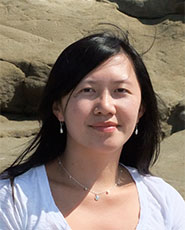Janet Chang, Ph.D.

- Associate Professor of Psychology
- Ph.D., University of California, Davis
- Office: Wayne Hall 533
- Phone: 610-436-3443
- Email: JChang@wcupa.edu
Office Hours: Fall 2025
- Leave of Absence for the Fall 2025 Semester
-
Courses Typically Taught
- PSY120 Multicultural Psychology
- PSY254 Social Psychology
- PSY410/510 Research in Psychology
- PSY540 Multicultural Psychology
- PSY609 Advanced Social Psychology
- PSY705 Multicultural Clinical Psychology
Brief Description of Research Interests
Professor Chang is a social-cultural psychologist whose research examines culture, coping, mental health, and well-being among vulnerable populations, including first-generation college students, Latinx, and Asian Americans. She examines how cultural values and norms--tied to race/ethnicity and social class--influence help seeking, with a focus on social support (i.e., turning to others for emotional comfort and assistance) and coping behaviors (e.g., self-reliance). She investigates ethnic/racial disparities in mental health and sociocultural influences on psychological functioning among diverse ethnic/racial groups. She was funded by the Robert Wood Johnson Foundation New Connections Program (2009-2012) to examine the relationship between social networks and mental health among Asian and Latinx Americans.
Selected Representative Publications
-
Chang, J., Wang, S., Mancini, C., McGrath-Mahrer, B., & Orama de Jesus, S. (2019). The complexity of cultural mismatch in higher education: Norms affecting first-generation college students’ coping and help-seeking behaviors. Cultural Diversity and Ethnic Minority Psychology. Advance online publication. http://dx.doi.org/10.1037/cdp0000311
- Chiang, M., Chang, J., Nakash, O., Cruz-Gonzalez, M., Fillbrunn, M. K., & Alegría, M. (2019). Changes in patient activation and mental illness symptoms after communication training: A multisite study with a diverse patient population. Psychiatric Services. Advance online publication. doi: 10.1176/appi.ps.201800216
-
Chang, J., & Samson, F. L. (2018). Ethnically heterogeneous friendships and symptoms of depression and anxiety among Filipino Americans. Asian American Journal of Psychology, 9(2), 158-168.
-
Tummala-Narra, P., Li, Z., Chang, J., Yang, E. J., Jiang, J., Sagherian, M., Phan, J., & Alfonso, A. (2018). Developmental and contextual correlates of mental health and help seeking among Asian American college students. American Journal of Orthopsychiatry. Advance online publication. doi: 10.1037/ort0000317.
-
Cheng, A. W., Chang, J., O’Brien, J., Budgazad, M. S., & Tsai, J. (2017). Model minority stereotype: Influence on perceived mental health needs of Asian Americans. Journal of Immigrant and Minority Health, 19(3), 572-581.
- Chang, J. (2015). The interplay between collectivism and social support processes among Asian and Latino American college students. Asian American Journal of Psychology, 6(1), 4-14.
- Chang, J., Chen, C.-N., & Alegría, M. (2014). Contextualizing social support: Pathways to help seeking in Latinos, Asian Americans, and Whites. Journal of Social and Clinical Psychology, 33(1), 1-24.
- Chang, J., Natsuaki, M. N., & Chen, C.-N. (2013). The importance of family factors and generation status: Mental health service use among Latino and Asian Americans. Cultural Diversity and Ethnic Minority Psychology, 19(3), 236-247.
- Chang, J., & Le, T. N. (2010). Multiculturalism as a dimension of school climate: The impact on the academic achievement of Asian American and Hispanic youth. Cultural Diversity and Ethnic Minority Psychology, 16(6), 485-492.
- Chang, J., & Sue, S. (2005). Culturally sensitive research: Where have we gone wrong and what do we need to do now? In M. G. Constantine & D. W. Sue (Eds.), Strategies for building multicultural competence in mental health and educational settings (pp. 229-246). Hoboken, NJ: John Wiley and Sons.
Brief Description of Teaching Philosophy
Professor Chang views learning as collaborative and interactive, encouraging her students to take an active part in their learning. In her classes, students learn to make meaningful connections between what they learn and what they observe and experience in everyday life. She also believes some of the best learning experiences come from faculty-student interactions and self-discovery.
